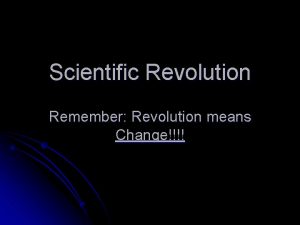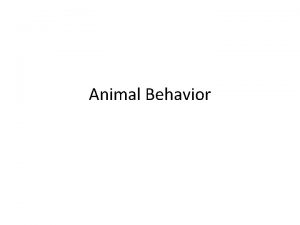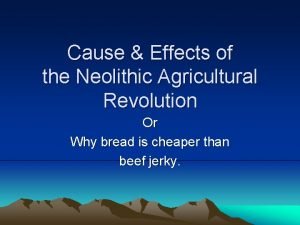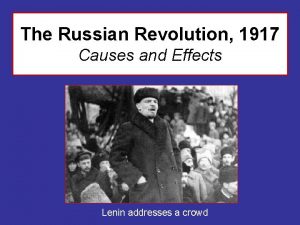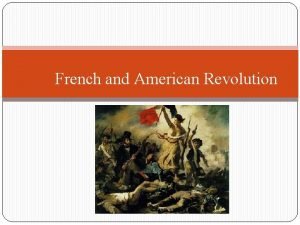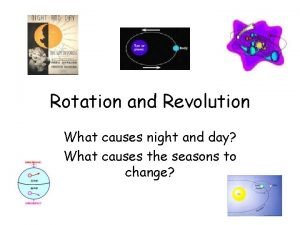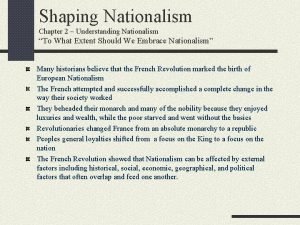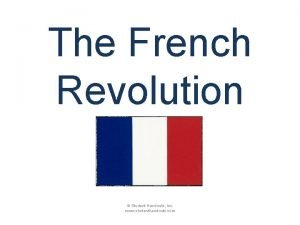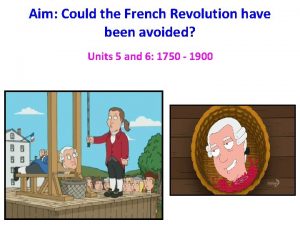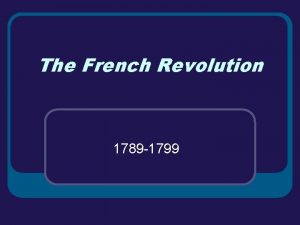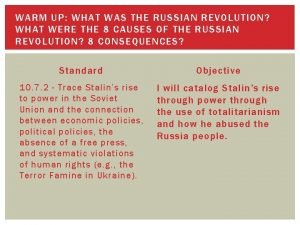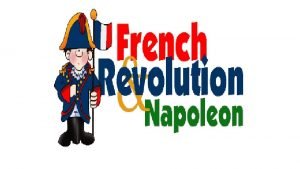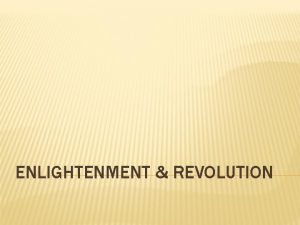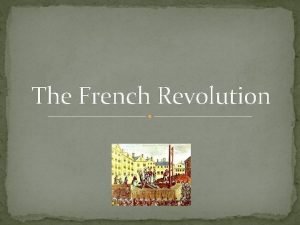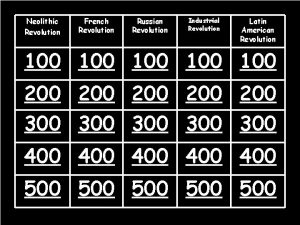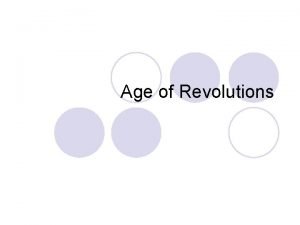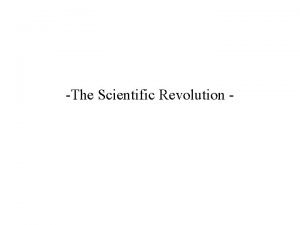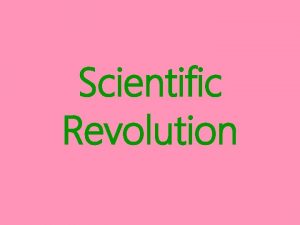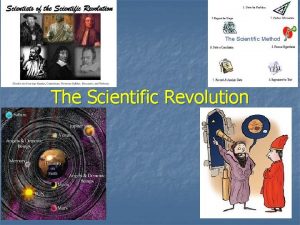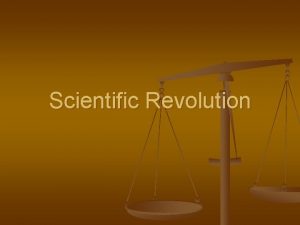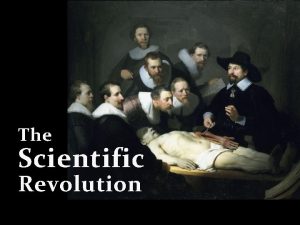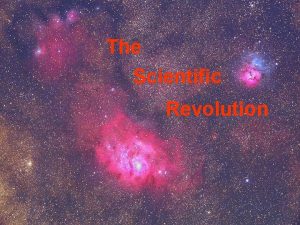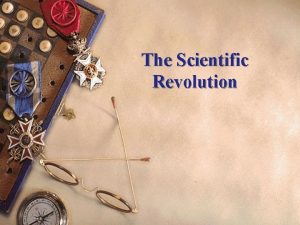The Scientific Revolution I Causes of the Scientific



















- Slides: 19

The Scientific Revolution

I. Causes of the Scientific Revolution n The Italian Renaissance n Idea of Challenging the Church n Trade (Navigational Issues) n Renewed emphasis on math n Better scientific instruments

Possibly The Greatest Invention in History The Printing Press n Created in 1456 n Johann Gutenburg n First Printed Book was the ……… n n. BIBLE

Effects of the Printing Press n Books were cheaper and more accessible n This lead to a greater spread of knowledge and a higher population of educated people n Exposed Europeans to new ideas that expanded their minds (EXPLORATION)

II. Old Scientific

Old View n Aristotle – geocentric theory: earth is center of universe. n. Upheld by the Church, which said that God put the earth at the center of the universe.

III. New Science “Revolutionaries”

A. Copernicus (1473 -1543) n Sun-centered universe called Heliocentric Model n Earth no different than any other planet just part of a large universe

B. Tycho Brahe (1546 -1601) n Proved that the planets revolved around the sun. n Also proved that rotation was not circular but oval shaped thus creating day and night.

C. Galileo Galilei (1564 -1642) n Revolutionized using the telescope n Said Earth moves and their was more out there than Heaven there was in fact a universe. n Threatened by Death for findings

D. Isaac Newton (1642 -1727) n Investigates and brings the idea of Gravity to world. n Created the math we know today as Calculus n Formed 3 Laws of Motion

Newton’s First Law of Motion: An object in motion tends to stay in motion and an object at rest tends to stay at rest, unless the object is acted upon by an outside force

Free Fall Air Resistance Newton’s Second Law of Motion: The acceleration of an object is directly pro-portional to the net force acting upon it and inversely proportional to its mass.

Newton’s Third Law of Motion: Every action has an equal and opposite reaction.

Effects of the Scientific Revolution n Skepticism and Independent Reasoning: For example, Descartes reached the extreme of skepticism by doubting his own existence. Then, he realized that his own act of thinking proved his own existence (I think, therefore, I am. ) n Challenges to Religion: The idea that the universe worked like a machine according to natural laws and without the intervention of God challenged established religious ideas.

n Decline in Belief in Magic, Demons, and Witchcraft: By the 18 th century, the educated classes denied the existence of demons and the power of witchcraft. The skeptical views of the educated classes were not shared by the common people for whom religion remained important. The result was a divide between learned and popular culture. n Questions about Humanity's Role in the Universe: By making humans the inhabitants of a tiny planet circling the sun, the Copernican Universe reduced the importance of humanity. It led people to begin to question the place

n Gave Humanity Control of Nature: Some philosophers argued that by gaining knowledge of the laws of nature, people could control nature. Through science and technology, they could improve human life. This belief in progress became an integral part of Western culture. n New Views on a Women's Worth: The new scientific ideas challenged the ancient and medieval beliefs about the physical and mental inferiority of women by concluding that both men and women made equal contribution to reproduction. Nevertheless, traditional notions about women continued to dominate

IV. Other Advancements CHEMISTRY n Elements & chemical compounds discovered. n Also idea of gases changing with temperature and solids and liquids forming came about. n Renaissance major chemist was Robert Boyle

IV. Other Advancements MEDICINE n Human Anatomy evolved during the time period with works from Da Vinci n Ointments to cure infections was created. n Microscope invented to see cells in body. n Idea of blood circulation from heart flourished an accurate depiction of it was crated
 Causes of scientific revolution
Causes of scientific revolution Why do new ideas spark change
Why do new ideas spark change Causes of scientific revolution
Causes of scientific revolution Animal behavior biology
Animal behavior biology Ultimate and proximate causes of behaviour
Ultimate and proximate causes of behaviour French revolution causes
French revolution causes Cause and effect of the agricultural revolution
Cause and effect of the agricultural revolution Causes and effects of the russian revolution
Causes and effects of the russian revolution American revolution effect
American revolution effect What causes night and day
What causes night and day French revolution causes
French revolution causes Short term causes of the french revolution
Short term causes of the french revolution Economic causes of french revolution
Economic causes of french revolution Haitian
Haitian French
French Story time in french
Story time in french Russian revolution effects
Russian revolution effects Glorious revolution causes
Glorious revolution causes French revolution causes and effects
French revolution causes and effects The causes of the french revolution
The causes of the french revolution


